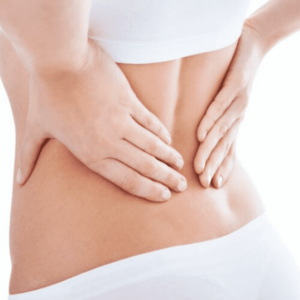The Silent Partner in Back and Neck Pain: How Stress & Emotion Thwarts Healing.
You've tried all the treatments, exercises and advice doing the rounds. But you're still suffering from back or neck pain. Maybe its been going on for a while. Maybe it's changed in intensity and sometimes you feel better, but at other times it's really bad and you can't get on top of it. Could it be due to stress or emotion?
Stress and Emotion: are you being pushed around?
Think of your back and neck pain as a small child who is being pushed around by bigger kids. Stress and emotion are the silent causes of sometimes intractable back and neck pain. It can arise from a sudden emotional strain, or develop under the radar, drip-fed over many months or indeed years. It may be an argument with close friend, constant relationship difficulties, difficulty coming to terms with something you can’t change. These things thrown on top of you emotionally, your body is out of balance, and that stress is stored in the tissues of your back and neck.
How Does Stress and Emotion Affect Us?

Stress is simply the body’s reaction when it feels loss of control, overwhelmed, threatened, anxious, etc. A small amount of stress and emotion can be helpful by motivating us, it can also help us to create new solutions.
Excessive stress however, can lead to constant emotion, irritability, loss of your ‘cheery self’. It can make you feel tired, anxious, unhappy or even difficult to live with. It can lead mental and emotional exhaustion, often called burnout.
Experiencing a lot of emotion and stress over a long period of time may lead to direct or indirect physical pain. In the light of a long-term picture this may result in poor healing as the body has been running on empty.
1. Stress and Emotion Causing Pain Through Injury
When exhausted we are more likely to encounter an injury. We are more likely to knock the glass of water over, trip up on the kerb, catch the finger in a door etc. The body loses fine control over action. In a sense the body is saying, it is so tired it is “allowing” an injury to manifest. The hope is that the person will slow down a little or take a rest.
The biology that underpins this is well documented and involves certain hormones and neural activity from the brain. Suffice it to say chronic longer-term stress and emotion can manifest this way, obfuscating healing.
We all encounter stress and emotion in our lives at some point, so we cannot always say that stress and emotion is behind all long-standing problems. However, stress and emotion become relevant when other causes have been eliminated from the picture.
At the Living Centre Clinic here in Raynes Park we see people who come in with neck and back pain, who are not getting better. For some it may be because they have an underlying stress or emotion that is wearing them out, draining their reserves for recovery, or simply that they are re-injuring themselves faster than they can heal.
2. Stress and Emotion Causing Nerve Generated Pain
When we are experiencing stress, emotion, anxiety or are worried, the amount of “thinking traffic” in the brain naturally increases. Thoughts may go round and round in our heads. If there is no let-up eventually a person may encounter a nervous breakdown (now known as depression). In order to save itself the brain can push “nervous traffic” away from itself, down specific nerves into different parts of the body. In this way, different body areas “soak up” up this energy.
These nerves are known as Cranial Nerves. These nerves are like a super high-way. They by-pass the spinal cord connecting the brain directly to a given body parts. Depending on where these cranial nerves end up there can be a variety of symptoms.
For example, the 10th cranial nerve, the Vagus Nerve supplies (amongst other things) the bowels. So for some people when they are stressed they may experience stomach problems, often diagnosed as irritable bowel syndrome. Similarly the 11th cranial nerve, the Accessory Nerve, supplies the back of the neck and shoulder. So stress along this nerve can tighten up neck and shoulder muscles causing pain. Similarly cranial nerves supplying face can cause twitching of a lip or an eye to occur.
Stress and emotion causing physical pain has existed with us for a very long time. Long enough to enter usage in common English language. For example
“Get it off your chest”
“Weight of the world on your shoulders”
“Too much on my head”
“Get him off my back”
“a pain in the neck”
“A pain in the backside”
3. Stress and Emotion Affecting Posture
The physical sensations of pain that come with stress and emotion have a lot to do with the way stress and emotion re-shape our posture.
Stress or tension may make you hunch your shoulders. Stress exhaustion may make you slouch more causing deeper back and neck pain. Stress and emotion can lead you to you curl into your stomach more as you get a sicky feeling.
Continued poor posture can also profoundly affect breathing. The feeling of not being able to take a deep breath may be related to stress-posture. Poor posture can lead us to tighten the diaphragm, making it harder to take a full breath when we stand up. We may only take shallow breaths and that can affect our muscular system, leading to tension or pain.

Sitting scrunched up closes the diaphragm.
The connection between stress and emotion is well known. There are several therapies that have grown out of this relationship. One of the most well known is the Alexander Technique. For example if men are sitting on a train, the nervous one may try and make themselves smaller, hunching in, folding arms and legs. Whilst the opposite man may sit sprawled out, arms and legs open taking up more space.
Over time stress and emotion does affect posture and it can affect people in different ways.
Find Relief From Back and Neck Pain

Depending on the type of stress or emotion you are encountering there are some simple things you can do to help.
If you suffer from a deep emotional issue, or long standing stress it may be worth having a chat with a professional counsellor. Alternatively it may be worth visiting your doctor.
Alternatively a relaxing massage or osteopathy treatment can help dissipate the tension as it accrues in your body. You may not be able to control the amount of traffic going round in your brain, but you may be able to dissipate it as it builds up in your body. This can give you a much needed rest bite and allow you to come up for air. For many people that we see here at the Living Centre Clinic in Wimbledon, this is all they need to get back on track.
If the stress and emotion is low grade, constant, and not likely to change exercise can be a great option. Main thing here is to keep it regular and at the same time of the day / week. It is also important to have a balance of cardio exercise (getting out of breath) as well as light muscle activity such as weights. Do remember the body needs rest days as well, as too much exercise on a possibly exhausted body won’t always give best results.
Lastly you can also consider tackling stress and emotion at a mind level. Meditation, mindfulness, breathing classes etc. You can also try Yoga, Tai Chi or Pilates, which we recommend.
Remember it takes time to unravel the root cause of stress, so don’t be afraid of asking for help.

Whilst it cannot be said that all persistent pain can be traced back to stress, it is safe to say that there is a direct correlation between the two. By identifying the signs and symptoms of stress and emotion, specifically relating to back or neck pain, you can consider inroads into finding out what action you need to take to relieve or eliminate the root cause of your pain.
So if you suffer from back pain, neck pain or headaches, it is worth considering how stress and emotion might be an underlying issue. It could be that a shift in your working life is causing you to work longer hours, or perhaps you have had a recent change in circumstances. Stress can also arise from emotional strain such as bereavement, relationship break up, financial worries or family conflicts. Releasing the stress via massage, osteopathy, exercise, yoga or meditation may bring the mind and body back into line with each other.

Ask me your question
Fill in a form click here
Email me click here
Fill in form opposite, to receive articles just like this when they are published.
– fill in the optional section to get discounts / offers on our treatments.
Vispi Jamooji DO PG Cert SPOP
Registered Osteopath (London, 1986)
Specialist Paediatric Osteopath & Cranial Osteopath
Living Centre Clinic
32 Durham Road, Raynes Park, London SW20 0TW
better@livingcentreclinic.com
020 8946 2331












